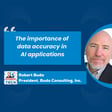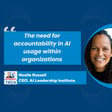
AWS, Azure, Google Dominate Cloud Market; GPT-5 Disappointment and AI Job Market Struggles
Amazon Web Services, Microsoft Azure, and Google Cloud dominate the infrastructure-as-a-service market, controlling 71% of the market share. This concentration is driven by the rapid growth of artificial intelligence, with global cloud spending projected to exceed $700 billion in 2025. The economic impact of AI is significant, as evidenced by Microsoft reaching a $4 trillion valuation, largely due to investments in AI infrastructure. However, this boom has created challenges for recent computer science graduates, who are struggling to find jobs in a tech industry that is increasingly adopting AI tools while simultaneously laying off employees.
The job market for young tech workers is deteriorating, with unemployment rates for those aged 20 to 30 rising sharply. Economists warn of a potential "jobless recovery" for white-collar roles, as AI continues to replace routine jobs. The share of tech jobs peaked in late 2022 but has since declined, leaving graduates questioning the reliability of traditional pathways into tech careers. This shift highlights the need for companies to reassess their hiring practices and adapt to the changing landscape influenced by AI.
In a concerning development, researchers have identified vulnerabilities in Google's Gemini AI Assistant that could allow attackers to hijack smart devices through manipulated calendar invites. These vulnerabilities pose significant risks as AI becomes more integrated into everyday applications. Although Google has addressed these issues, the potential for exploitation raises alarms about the security of AI systems and the importance of implementing strict controls and user training to mitigate risks.
The recent launch of GPT-5 by OpenAI has sparked disappointment among users, leading to a petition for a return to the previous model. Many users feel that GPT-5 does not offer substantial improvements over its predecessor, resulting in a significant drop in OpenAI's perceived leadership in AI. This disconnect between advanced AI tools available at home and outdated technology in the workplace is causing dissatisfaction among employees, prompting organizations to evaluate their AI policies and capabilities to retain talent and enhance productivity.
Four things to know today
00:00 AI Boom Fuels Cloud Giants’ Growth While Squeezing Entry-Level Tech Jobs
06:33 Researchers Expose Gemini AI Flaw Allowing Smart Device Hijacking via Calendar Invites
08:04 GPT-5 Backlash Highlights AI Leadership Slip and Workplace Adoption Crisis
11:06 Intel CEO Goes from “Conflict Risk” to “Success” in Trump’s Eyes
Supported by: https://scalepad.com/dave/
Tell us about a newsletter https://bit.ly/biztechnewsletter
All our Sponsors: https://businessof.tech/sponsors/
Do you want the show on your podcast app or the written versions of the stories? Subscribe to the Business of Tech: https://www.businessof.tech/subscribe/
Looking for a link from the stories? The entire script of the show, with links to articles, are posted in each story on https://www.businessof.tech/
Support the s


















